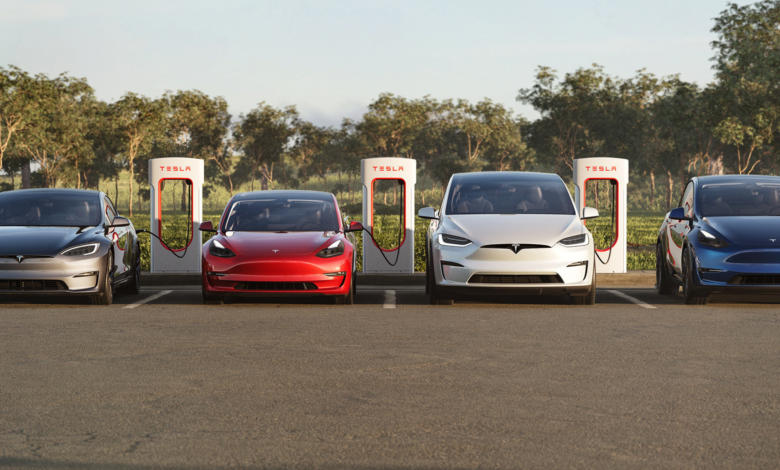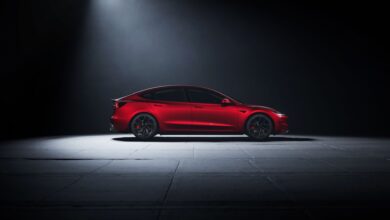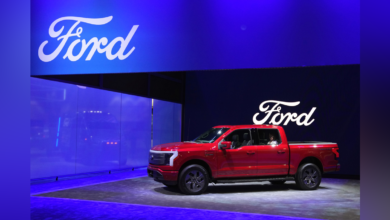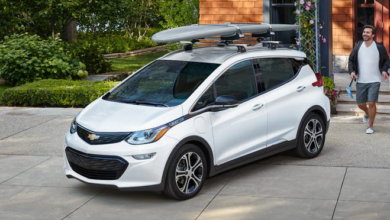Tesla Is Great. Here’s Why You Shouldn’t Buy It.

This EV pioneer has seen tremendous growth over the years.
In the past decade, Tesla (TSLA -0.26%) has been one of the best companies an investor could have owned. Its shares have skyrocketed 1,180% during this time, despite currently being down 58% from their peak (as of June 5).
There’s no denying that this top electric vehicle (EV) maker is great, otherwise it wouldn’t have done so well for its shareholders. However, I don’t think you should buy the stock. Here’s why.
Disrupting the auto industry
What Tesla has accomplished in two decades is nothing short of spectacular. The business and visionary founder and CEO Elon Musk singlehandedly spearheaded the current EV movement as we know it, essentially disrupting the automotive industry with a focus on sustainability that’s slowly trying to create a shift away from gas-powered cars.
It also helps that Tesla’s tech-enabled vehicles have strong performance and compelling features. These traits are part of the reason why the Model Y, which is one of five models the company currently offers, was the top-selling vehicle in the world in 2023.
Last year, Tesla sold 1.8 million units. That figure was up about 80-fold from the 22,400 cars it shipped in 2013. This monster growth helped drive tremendous revenue gains over the years, which is the key factor that has propelled the stock to new heights.
Tesla’s success has created a well-recognized global consumer brand. And the business deserves credit for achieving consistent GAAP net profitability starting in 2020. This demonstrates Tesla’s scale and cost advantages, particularly when compared to the many competitors that struggle to generate positive earnings.
Just a car company
With so much to like, why shouldn’t you buy Tesla stock? For all the attention Tesla gets as an innovative enterprise that will one day be much more than a manufacturer of vehicles, it has proven to just be a car company so far. It can’t avoid the challenges facing the auto industry, whether that’s supply chain issues or labor disputes. And it can’t ignore problems with the broader economy, such as inflation woes and high interest rates that both pressure demand from consumers for new cars.
After reporting 19% sales growth in 2023 — already a dramatic slowdown from prior years — Tesla posted a 9% revenue decline in Q1. And Musk expects volume production to be “notably lower” in 2024 compared to last year.
This is all troubling, especially given that the stock still trades at an expensive valuation. Even with the shares taking a hit, they sell at a price-to-earnings ratio of 44.6. This is a steep multiple that I don’t believe is warranted.
But some of Tesla’s fiercest bulls think the business will reach its lofty goal of one day launching a global robotaxi service. Should the business finally solve the problem of introducing full self-driving capabilities to its vehicles, then it could operate an Uber-like service that produces high-margin revenue at scale.
There might even be sizable long-term potential with Tesla commercializing its humanoid robots or in the energy generation and storage space. But investors can’t just assume that outsize success in these areas is a foregone conclusion. There is too much uncertainty as to the ultimate outcome.
The current valuation reflects a still-bullish perspective from the market. At the end of the day, Tesla still appears to be a story stock. And there is still a premium probably attributable to Musk. This might be the case for the foreseeable future.
The way I see it, though, is that returns going forward aren’t likely even to come close to resembling the past. In fact, they might be a disappointment.
Neil Patel and his clients have no position in any of the stocks mentioned. The Motley Fool has positions in and recommends Tesla and Uber Technologies. The Motley Fool has a disclosure policy.



